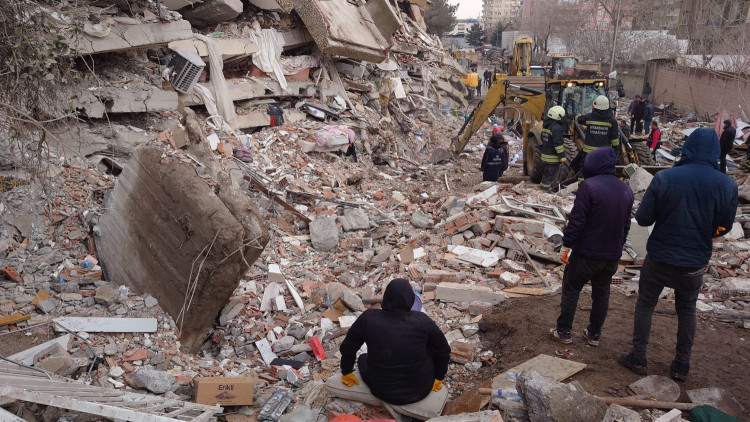Two days after an earthquake swept through southern Turkey and war-ravaged northern Syria, rescuers raced against the clock early Wednesday morning to retrieve survivors from the rubble before they succumbed to frigid weather.
The death toll surpassed 7,700 and is anticipated to grow further.
More than 30 hours after Monday's pre-dawn earthquake, the past two days have witnessed remarkable rescues, including the retrieval of little children from debris piles. In certain communities, however, there was widespread despair and growing frustration over the poor pace of rescue efforts.
Monday's magnitude 7.8 earthquake and intense aftershocks caused widespread destruction across southeastern Turkey and neighboring Syria, spanning hundreds of miles. The earthquake demolished thousands of structures and added to the agony in a region already devastated by Syria's 12-year civil conflict and refugee crisis.
Nearly 30 nations dispatched search teams, and humanitarian pledges flooded in. However, when the destruction spread across multiple cities and towns - some of which were cut off by Syria's continuing civil war - calls pleading for assistance from within heaps of wreckage ceased.
Turkish President Recep Tayyip Erdogan stated that 13 million of the country's 85 million inhabitants were affected, and he proclaimed a state of emergency in 10 districts. More than 8,000 people have been rescued from the rubble in Turkey, and some 380,000 have sought safety in government shelters or hotels, according to the authorities.
However, residents of hard-hit Hatay, which is situated between Syria and the Mediterranean Sea, criticized officials for their lackluster rescue operations. The crisis management of Erdogan could have a significant impact on the upcoming May elections, and his staff has already dismissed the criticism as lies.
According to Health Minister Fahrettin Koca, 1,647 persons were killed in Hatay alone, the greatest number of any province in Turkey. Approximately 1,846 people had been rescued as of Tuesday evening, he reported. After the earthquake devastated the runway, the airport in Hatay was closed, which complicated rescue efforts.
Aid operations in Syria have been impeded by the ongoing civil conflict and the isolation of the rebel-held border region, which is encircled by government forces supported by Russia. Syria is a worldwide pariah due to war-related Western sanctions.
Volunteer first responders known as the White Helmets have years of experience rescuing victims from buildings devastated by Syrian and Russian airstrikes in the rebel-held enclave, but they report that the earthquake has exceeded their ability.
Mounir al-Mostafa, the White Helmets' deputy leader, stated that the organization was able to respond effectively to up to 30 places at once, but now receives over 700 calls for assistance.
"Teams are present in those locations, but the available machinery and equipment are not enough," he added, adding that the first 72 hours of any rescue operation are important.
The United Nations stated that it was "exploring all avenues" to transport supplies to the northwest region held by rebels.





